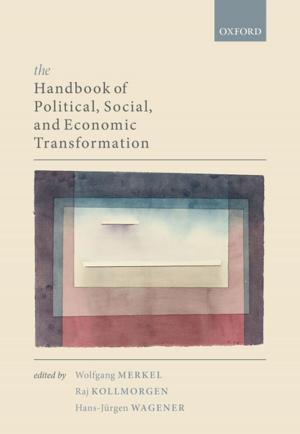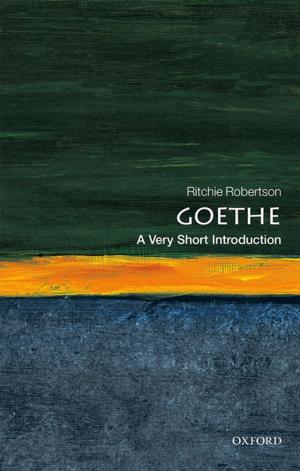Remaking Global Order
The Evolution of Europe-China Relations and its Implications for East Asia and the United States
Nonfiction, Social & Cultural Studies, Political Science, International, Foreign Legal Systems, Business & Finance| Author: | Nicola Casarini | ISBN: | 9780191609732 |
| Publisher: | OUP Oxford | Publication: | September 3, 2009 |
| Imprint: | OUP Oxford | Language: | English |
| Author: | Nicola Casarini |
| ISBN: | 9780191609732 |
| Publisher: | OUP Oxford |
| Publication: | September 3, 2009 |
| Imprint: | OUP Oxford |
| Language: | English |
Relations between the European Union and China have grown at a sustained pace across the board in recent times, transforming the relationship from one of previous neglect into a matter of global strategic significance. This book offers an examination of the evolution of contemporary EU-China relations in the economic, technological and high politics dimensions, including implications of the high-tech and security-related elements of the relationship (space and satellite navigation cooperation; advanced technology transfers; arms sales, including the proposal to lift the EU arms embargo on China) for the United States and its East Asian allies. The analysis of EU-China relations is placed in the context of evolving dynamics in transatlantic relations on the one hand, and East Asia's major powers' changing security perceptions on the other. With this approach, this study intends to provide the reader with a better understanding of the global significance acquired by Sino-European relations, while also raising the question as to whether, and to what extent, the promotion of EU space and defence interests in China has made the EU a novel strategic factor in East Asia. This book contributes to current debates on the emerging global order, including discussions of how European and Chinese policy makers would perceive the post-Cold War international system, evaluate the place and role of their countries in it, and appraise the policies to be adopted to maintain global competitiveness in key strategic industrial sectors and increase political autonomy in an international environment characterised by US primacy.
Relations between the European Union and China have grown at a sustained pace across the board in recent times, transforming the relationship from one of previous neglect into a matter of global strategic significance. This book offers an examination of the evolution of contemporary EU-China relations in the economic, technological and high politics dimensions, including implications of the high-tech and security-related elements of the relationship (space and satellite navigation cooperation; advanced technology transfers; arms sales, including the proposal to lift the EU arms embargo on China) for the United States and its East Asian allies. The analysis of EU-China relations is placed in the context of evolving dynamics in transatlantic relations on the one hand, and East Asia's major powers' changing security perceptions on the other. With this approach, this study intends to provide the reader with a better understanding of the global significance acquired by Sino-European relations, while also raising the question as to whether, and to what extent, the promotion of EU space and defence interests in China has made the EU a novel strategic factor in East Asia. This book contributes to current debates on the emerging global order, including discussions of how European and Chinese policy makers would perceive the post-Cold War international system, evaluate the place and role of their countries in it, and appraise the policies to be adopted to maintain global competitiveness in key strategic industrial sectors and increase political autonomy in an international environment characterised by US primacy.















